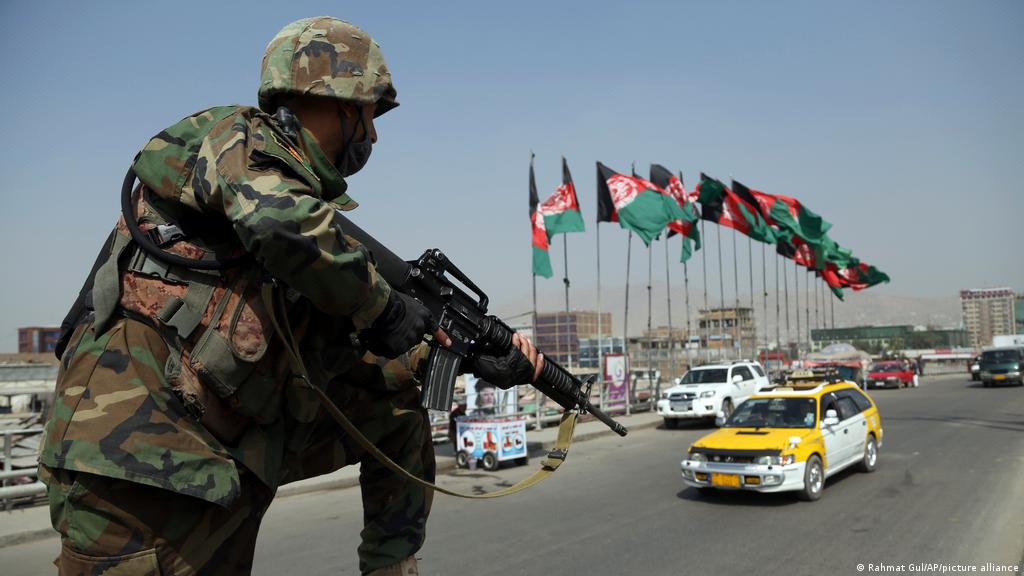
Forty-two years have passed since the start of nonstop imposed conflicts in Afghanistan. During this period, several attempts have been made to stabilize the country and to restore sustainable peace there. However, each peace effort has failed or stalled, including the Doha Agreement recently, which the United States under the Trump administration and the Taliban signed in February 2020.
This expedient measure that intended to serve the former president’s electoral goals excluded the Islamic Republic of Afghanistan as a principal stakeholder in the U.S.-Taliban talks that produced a fragile deal. But it coerced the Islamic Republic into making an link slot unprecedented concession: the release of over 5,500 Taliban prisoners. In exchange, the Taliban was supposed to start meaningful “intra-Afghan” talks, notably reduce violence towards a mutual ceasefire, sever ties with al Qaeda and other terrorist groups, and ensure those prisoners would not return to the battlefield. None of these have so far materialized, thanks to the Taliban and their regional state-sponsor, Pakistan.
As former war criminals and drug-traffickers, most of the released Taliban prisoners have either returned to the battlefield or resumed drug-trafficking out of Taliban-controlled areas. And still others have manned the Taliban’s campaign of targeted killings, whose victims are largely the drivers of Afghanistan’s continued progress, including protection of human rights, empowerment of women and girls, and freedoms of expression and press.
Last week, the United Nations Assistance Mission to Afghanistan reported on the Taliban’s genocidal acts of terrorism, claiming “1,783 civilian casualties, a 29 per cent increase compared with the same period in 2020.” And it lamented that “of particular concern is the 37 per cent increase in daftar situs judi slot online terpercaya the number of women killed and injured, and a 23 per cent increase in child casualties compared with the first quarter of 2020.”
It is clear from this grim picture that even though the government and people of Afghanistan have demonstrated concrete willingness and preparedness to negotiate a sustainable political settlement with the Taliban to end the imposed war, the latter have judi slot contrarily exploited Afghan and international peace efforts to gain legitimacy, while escalating their terror campaign across Afghanistan. What accounts for such Taliban behavior?
First, the Taliban and Pakistan are hardly genuine peacemakers. Rather, they are both peace spoilers, as they may easily be judged by their deliberate and consistent peace-spoiling behavior since the relaunch by President Ashraf Ghani of the Kabul Process for Peace and Security Cooperation in June 2017. As President Trump’s 2017 South Asia Strategy highlighted in detail and U.S. intelligence reports have confirmed since, “the Taliban enjoy safe havens in Pakistan where they receive arms, intelligence guidance, operational training, and ideological indoctrination.” As early as 2004, these lines of enduring support have enabled the Taliban to prosecute a growing terror campaign against the Afghan people, while denying them peace as the most basic human right.
To that end, the Taliban have deliberately frustrated every genuine peace effort made by the Islamic Republic of Afghanistan, which enjoys overwhelming public support, the backing of most of the neighboring countries, as well as that of the broader international community, including the Muslim world. In this regard, last March in Dushanbe-Tajikistan, the country-participants of the Foreign Ministerial Heart of Asia–Istanbul Process Conference, which included supporting judi slot online jackpot terbesar countries from outside of the 16-country Heart of Asia region and supporting regional and international organizations, reaffirmed their commitment to and support for the peace efforts of the Islamic Republic. And in their joint declaration, they strongly condemned “high level of violence in Afghanistan, especially the high number of civilian causalities and deliberate targeting of civil service employees, civil society activists, human rights defenders, journalists and media workers by the Taliban.”
Third, Pakistan’s well-documented behavior has received inconsistent, scant attention from the principal stakeholders that intervened in Afghanistan 20 years ago. Commenting on institutional support for terrorism in Afghanistan’s neighborhood, Trump tweeted on Jan. 1, 2018: “The United States has foolishly given Pakistan more than 33 billion dollars in aid over the last 15 years, and they have given us nothing but lies and deceit, thinking of our leaders as fools. They give safe haven to the terrorists we hunt in Afghanistan, with little help. No more!” This has often prompted Afghans to question the very rationale of waging a war against terrorism in Afghan villages and mountains.
Afghans too often are the victims of the domestic priorities or conflicting foreign policy interests of our partners. For example, the politics surrounding electoral cycles in major troop-contributing countries usually has gotten in the way of implementing a long-term coherent war strategy for sustainable peace in Afghanistan. To do so, we have long been told by the West, would require strategic patience and a firm commitment of adequate resources for high-impact aid implementation. This could have continually strengthened civil-military state capacity for the provision of essential services across the country and built critical infrastructure to integrate Afghanistan with the slot online yang sering kasih jackpot regional and global markets for sustainable job creation. And these state- and market-building efforts could have been complemented with the pursuit of robust diplomacy to incentivize regional consensus and cooperation to restore durable peace in the country.
On the contrary, however, Afghanistan stabilization and reconstruction efforts were first underfunded and later remained piecemeal, inconsistent, and disconnected from the end goal of helping Afghans stand on our own. As former National Security Adviser and author of the U.S. South Asia Strategy H.R. McMaster tweeted last week, “…Americans are frustrated with not a twenty-year war, but a one-year war fought twenty times over. We will look back on this time with shame and regret.”
Hussain Haqqani, Pakistan’s former ambassador to the United States, a longtime observer and critic of his country’s role in Afghanistan, similarly reacted to the latest U.S. Afghanistan policy announcement, saying: “The U.S. military went into Afghanistan immediately after 9/11 to ensure that Afghanistan did not again become a center for global jihad and radical Islamism. American troops have stayed in Afghanistan for almost two decades, not because that was the plan but because there were 19 one-year plans. This might be the time to develop a long-term U.S. plan for Afghanistan’s future.”
Looking ahead, when a peace agreement finally has been hammered out, the international community must be mindful of the difficulty and complexity of the peace implementation environment in Afghanistan, which is awash with onshore and offshore spoilers. They have so far proven to undermine peacemaking efforts or achievements that would not favor their strategic goals. That is why a well-calculated peace enforcement strategy with rakyatpintar.com adequate coercive capabilities, including targeted sanctions, must be considered for implementation, following the signing of a judicious and comprehensive peace agreement with the Taliban.
And to that end, the demobilization of former combatants, demilitarization of politics, civilian security, as well as peacebuilding programs that promote human rights, empowerment of women, and reconciliation should be given top priority to help peace take sustainable root in Afghanistan. Without adopting and committing to execute such a peace enforcement strategy, a signed document alone — like the 1988 Geneva Accords — would only dash Afghans’ hopes of achieving durable peace.
Indeed, the prevention of this tragic history, which included 9/11 as one of its key consequences, from repeating itself would serve the increasingly intertwined interests of all stakeholders from the United States and Europe to major regional actors China, India, Russia, Iran, Turkey, and Qatar. As they recently pledged in the Heart of Asia -Istanbul Process Conference, together, they can and must cooperate to free Afghanistan from the imposed shackles of extremism, terrorism, drugs, and poverty. Doing so would quickly translate into diminished security and criminal threats across the region. And this should pave the way for tangible regional economic cooperation by way of enhanced connectivity for transit trade, energy supply, fiber-optic cables, and people-to-people interactions through a peaceful Afghanistan at the Heart of Asia.
Featured image is from DW
Mohammad Ashraf Haidari is Ambassador of Afghanistan to Sri Lanka. He was Director of Policy and Strategy at the Ministry of Foreign Affairs of Afghanistan and have served at the at the Embassy of Afghanistan in India and Washington DC.
